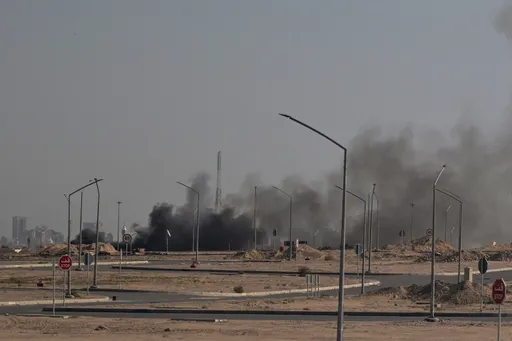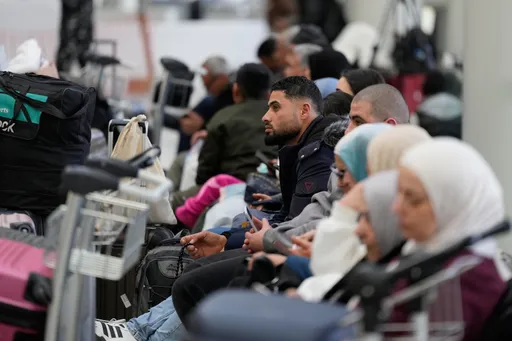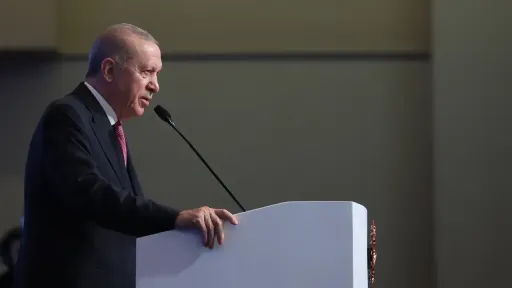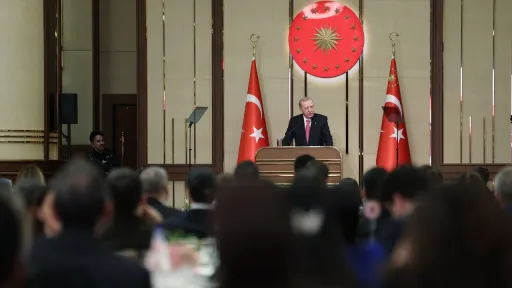By Emmanuel Onyango
South African officials have been defending a new land reform law after US President Donald Trump threatened to cut all future funding to the country over claims that the legislation will lead to land confiscations.
South Africa insists the legislation signed into law last month by President Cyril Ramaphosa is not a “confiscation instrument” but a means to “ensure public access to land”.
Land ownership in the country still reflects the legacy of dispossession under the white-minority apartheid regime that resulted in most private farmlands being owned by white landowners – more than 30 years since the end of the apartheid.
Trump told journalists on Sunday, without providing evidence, that South Africa's ‘’leadership is doing some terrible things, horrible things" and that an investigation was underway.
“We are making a determination and until such time that we find out what South Africa is doing - they are taking away land, they are confiscating land, and actually they're doing things that are perhaps far worse than that,’’ he said.
How did we get here?
Successive admirations in South Africa have been under domestic pressure to address some of the wrongs of the racist apartheid era that allowed forced removal of Black people from their ancestral land – later pushed to rural areas and urban townships.
Three decades after the end of apartheid regime, land ownership remains highly skewed in favour of white farmers.
A land audit released in 2017 said that 72% of privately-owned farmland was white-owned, while only 5% was owned by Blacks. The report was meant to provide information on private land ownership by race, nationality, and gender.
It recommended the introduction of a legislation that will “vest land as the common property of the people of South Africa as a whole”.
Several lawsuits on land disputes have also seen courts declaring some apartheid-era land legislations unconstitutional.
What is the Expropriation Act?
The recently passed law allows the government to seize land in ‘’public interest’’. President Ramaphosa has assured that the policy is aimed at ensuring land justice. South Africa "has always had expropriation laws that balance the need for public usage of land and the protection of rights of property owners," he said.
He said the new law will ensures “access to land in an equitable and just manner as guided by the constitution”.
What has been the response to Trump’s threat?
Trump’s billionaire ally, Elon Musk, who was born in South Africa, is among people criticising the South African land reform law and backing Washington’s possible action against Pretoria.
However, some experts say if Trump’s fury and threat of aid cut were purely on the land matter, then his response was premature and that he needs to understand the South African law first.
“Donald Trump is obviously ill-informed’’ about South Africa's expropriation law, South African academic and political strategist Ongama Mtimka tells TRT Afrika.
‘’All of these countries have got expropriation acts in order to achieve particular public purposes. That's what the South African government has done," Mtimka says.
"The inclusion of a clause on nil compensation is strictly limited and would not achieve what Donald Trump and his right-wing counterparts are claiming the government has been able to do with this act," he adds.
“South Africa is a constitutional democracy that is deeply rooted in the rule of law, justice and equality. The South African government has not confiscated any land,” President Ramaphosa said in a post on X platform, rejecting Trump’s claims of land confiscation in South Africa.
‘We are not beggars’
Ramaphosa's coalition partner, Democratic Alliance party leader John Steenhuisen, has also weighed in on the debate in a statement that “clarified misconceptions” about the new law
“It is not true that the Act allows land to be seized by the state arbitrarily, and it does require fair compensation for legitimate expropriations,” he said in a statement.
“It is unfortunate that individuals have sought to portray this Act as an amendment to Section 25 of the Constitution to allow for expropriation without compensation.”
South Africa’s Mineral and Petroleum Minister Gwede Mantashe said President Trump's threat to freeze funding to South Africa should be met with an equally drastic response from African countries.
“Let’s mobilise Africa, let’s withhold minerals to US. If they don’t give us money, let’s not give them minerals,” he told Africa’s largest mining investment summit on Monday.
“We have minerals on the continent, therefore we have something,” he said, adding: “We are not beggars.”
Global politics at play?
South Africa is the US biggest trading partner in Africa. In 2022, US goods and services exports to South Africa were worth $9.3 billion while it imported $16.2 billion worth of goods and services, according to the office of the United States Trade Representative.
The United States committed nearly $440 million in assistance to South Africa in 2023, according to US official data.
But South Africa has never shied away from publicly declaring key areas of differences with Washington.
Pretoria filed a genocide case against Israel at the International Court of Justice (ICJ) in December 2023 much to the chagrin of the US, a key ally and supplier of weapons to Israel.
Earlier in May that year, the US ambassador to South Africa accused the country of providing weapons to Russia for its war with Ukraine. An independent inquiry found no evidence supporting the envoy’s claims.
South Africa is among the founding BRICS members who have been discussing shifting from the dollar in recent years. Last month President Trump said that there was no chance for the countries to replace the US dollar.
"Any Country that tries should say hello to Tariffs, and goodbye to America!" Trump stressed.
‘’It is very clear that Donald Trump is playing the card of coercive diplomacy which the US has played throughout history when it comes to governments that do not do its bidding on the foreign policy front,’’ Mtimka says.
"Now we do know that South Africa has had foreign policy choices that were not favored by the US in recent years. Starting with the Russia-Ukraine war, taking Israel to the International Court of Justice, as well as its involvement in BRICS," the academic opines.
"All of these are seen by the Trump administration as intolerable alliances," he adds.
➤Click here to follow our WhatsApp channel for more stories.























